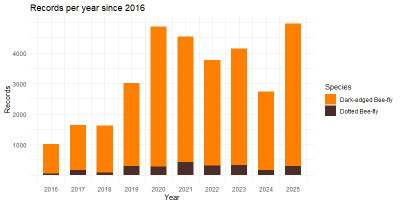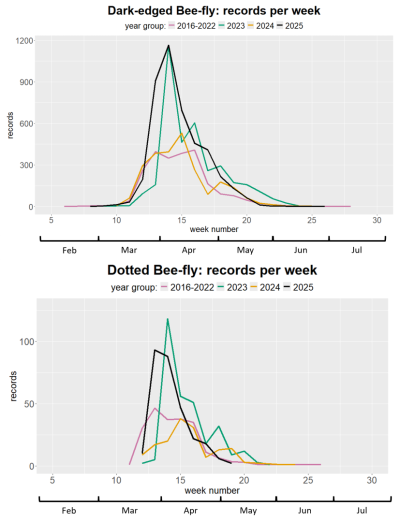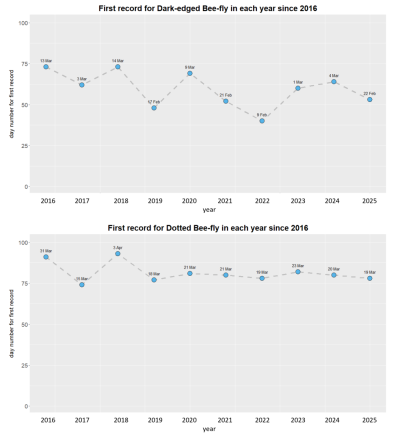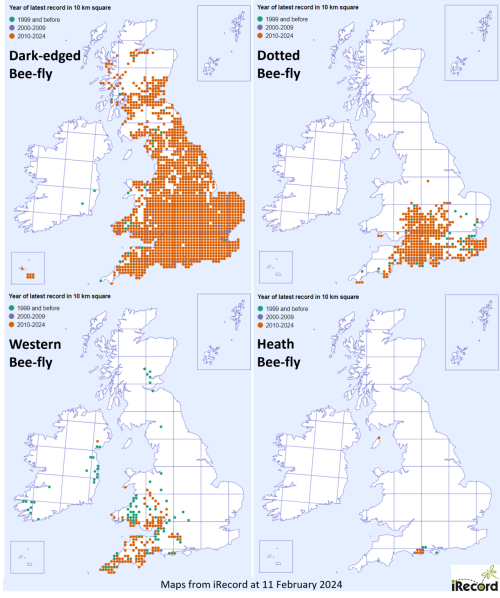Bee-fly Watch has been running since 2016, and since then nearly 33,000 records of the four species of Bombylius bee-fly have been contributed. The main purpose of Bee-fly Watch is to encourage people to enjoy watching bee-flies! In addition, the records help us to monitor changes in the distribution and flight period of the flies.
The two early spring species are the ones most frequently seen, and in 2025 we had more records than in any previous year! And 2025 was a much better year for bee-flies than 2024, reflecting the much sunnier conditions over much of the UK in spring 2025 compared to 2024.

The four species are:
| English name | Scientific name | Flight period and distribution | Earliest ever sighting |
|---|---|---|---|
| Dark-edged Bee-fly | Bombylius major | A spring species (most records in March–May), widespread and common across the UK except in upland areas | 9 February (in 2022) |
| Dotted Bee-fly | Bombylius discolor | A spring species (most records in March–May), fairly common in southern parts of England and Wales, range expanding northwards | 15 March (in 2017) |
| Western Bee-fly | Bombylius canescens | A summer species (most records in May–July), fairly common in Wales and south-west England, and appears to have been lost from the more northerly parts of its former range | 26 April (in 2020) |
| Heath Bee-fly | Bombylius minor | A summer species (most records in July–August), restricted to sandy habitats in Dorset and the Isle of Man | 23 June (in 2020) |
Flight periods
Thanks to the Bee-fly Watch records, we know that the timing of bee-fly emergence each year is closely tied to the temperature and sunshine levels in early spring. In 2024 we had a relatively cool and wet spring, and bee-flies were reported in much lower numbers than in 2023. In contrast, 2025 had warm sunny weather across much of the UK during March and April, and bee-fly records were much more numerous, reaching a similar peak to that seen in 2023.
The first dates for the two spring species in 2025 were not exceptionally early, but they were seen little earlier than the previous two years.
Bee-fly records in 2026
See the records for 2026 as they come in, via iRecord:
Distribution
Distribution maps for records in all years up to 2024 are shown below, based on all the recording scheme records. To explore the latest maps in more detail visit the map pages via these links to iRecord:
| Dark-edged Bee-fly | Dotted Bee-fly | Western Bee-fly | Heath Bee-fly |



